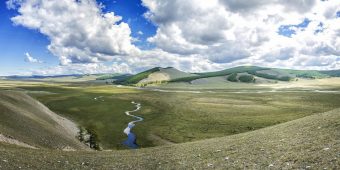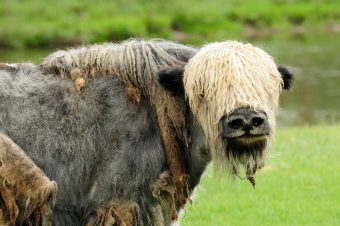
The Green Climate Fund approved a new US$23.1million grant to UNDP supported project aimed at strengthening climate resilience in Mongolia. The grant comes at a time when the country is facing a range of natural disasters, climate change is multiplying the challenges with estimated economic costs around $10-15 million annually, and COVID-19 further exposing vulnerability of livestock sector.
Mongolia’s economy relies heavily on the agriculture and livestock husbandry sectors, with a high dependency on natural resources. Livestock accounts for 90 percent of the agriculture sector and represents the lion’s share of provincial economies (around 85 percent). Herder households are particularly vulnerable to climate change impacts. Adaptation needs are expected to increase significantly as climate change impacts intensify.
More:
The new grant reinforces the importance of green recovery and resilient growth. Approximately 26,000 households (130,000 people) living across four of the country’s most remote and vulnerable Western and Eastern provinces are set to benefit, with a further 160,000 households (800,000 people) to benefit indirectly – which is about one quarter of Mongolia’s entire population.
The project’s design links closely with Mongolia’s National Action Program on Climate Change, vision 2050, and policies related to the livestock sector, as well as its Nationally Determined Contributions under the global Paris Agreement. Implementation of the project activities is expected to begin in mid-2021.

It is expected that the project will be able to bring together climate-informed natural resources management and sustainable livestock practices, building on traditional cooperative approaches while also introducing innovative technologies. It will enhance the use of climate prognosis data in decision-making; rehabilitate degraded land and catchment areas; improve herders’ water and grazing land management practices; and strengthen access to markets for herders. Crucially, it will also support the policy transformations needed to promote sustainable livestock and pasture management practices.
The new 7-year project will be led by the Ministry of Environment and Tourism, with the Ministry of Food, Agriculture and Light Industry as a key partner. UNDP is working with the Government of Mongolia on a range of climate change-related initiatives, including accelerating efforts to implement its Nationally Determined Contribution (NDC) under the global Paris Agreement, and, under the NDC Support Programme and ‘Climate Promise’, supporting Mongolia to develop an NDC implementation strategy and set up a south-south cooperation on NDCs with other Central Asian countries.
Source: UNDP
